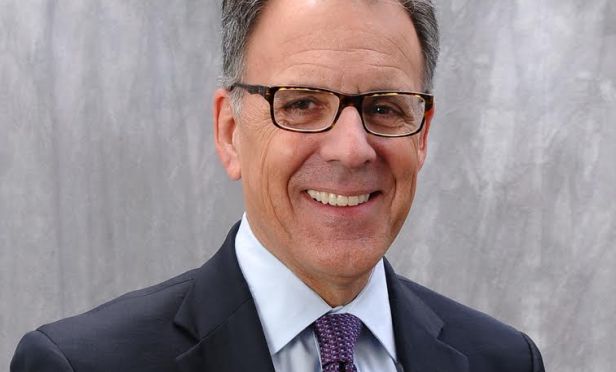
ATLANTA—With a new administration in the White House, interest rates rising, regulations potentially changing, and talk of recession, there is a lot for commercial real estate investors to consider this year. But what are they concerned about most right now?
GlobeSt.com caught up with Jim Reed, director of Franklin Street in Jacksonville, to get his thoughts on that and other pressing questions in part two of this exclusive interview. You can still read part one: Why You May Want to Invest a Little Further North.
GlobeSt.com: You work with investors every day. What are they most concerned about?
Reed: Investors are always looking for realistic upside potential and higher yield. Many are willing to, or have to, look outside the top-tier markets to find it.
Realistically priced assets draw a lot of attention, but investors will not be overly aggressive in bidding on these deals. Sustainable job and wage growth in the market are key factors to support their decisions.
GlobeSt.com: What are the key challenges facing the multifamily sector today?
Reed: Moderating employment growth compared to the three prior years, increased supply of new units and erosion of some of the apartment fundamentals may lead to rent concessions. This is particularly true for new properties going through initial lease up and may bleed over into existing competing properties. Rising interest rates will also be a concern, although I believe that changes in banking regulations may also impact the availability of capital. (Did you know many private multifamily investors are exploring this new financing options?)
GlobeSt.com: Millennials are helping to drive the rental market. What other factors are impacting the market?
Reed: Strong labor markets and the increasing rate of household formations are key drivers. The number of new households that are renting their homes cannot be overlooked. For many, this is a lifestyle choice, which is difficult to quantify, but cannot be ignored. A trend among Baby Boomers, which is our second-largest population group, is projected to downsize into apartments that offer the amenities and lifestyle they seek, forgoing home ownership.
GlobeSt.com: How does the Southeast look in terms of rent growth?
Reed: According to REIS, year-over-year increases in the Southeast region will be in the 3 to 3.6% range for the next couple of years, and they are projecting rent growth to moderate down to 2.1% in 2021. Owners and managers I talk with continue to see stronger applicants with better employments histories and credit, so they can be more selective in choosing tenants.

ATLANTA—With a new administration in the White House, interest rates rising, regulations potentially changing, and talk of recession, there is a lot for commercial real estate investors to consider this year. But what are they concerned about most right now?
GlobeSt.com caught up with Jim Reed, director of Franklin Street in Jacksonville, to get his thoughts on that and other pressing questions in part two of this exclusive interview. You can still read part one: Why You May Want to Invest a Little Further North.
GlobeSt.com: You work with investors every day. What are they most concerned about?
Reed: Investors are always looking for realistic upside potential and higher yield. Many are willing to, or have to, look outside the top-tier markets to find it.
Realistically priced assets draw a lot of attention, but investors will not be overly aggressive in bidding on these deals. Sustainable job and wage growth in the market are key factors to support their decisions.
GlobeSt.com: What are the key challenges facing the multifamily sector today?
Reed: Moderating employment growth compared to the three prior years, increased supply of new units and erosion of some of the apartment fundamentals may lead to rent concessions. This is particularly true for new properties going through initial lease up and may bleed over into existing competing properties. Rising interest rates will also be a concern, although I believe that changes in banking regulations may also impact the availability of capital. (Did you know many private multifamily investors are exploring this new financing options?)
GlobeSt.com: Millennials are helping to drive the rental market. What other factors are impacting the market?
Reed: Strong labor markets and the increasing rate of household formations are key drivers. The number of new households that are renting their homes cannot be overlooked. For many, this is a lifestyle choice, which is difficult to quantify, but cannot be ignored. A trend among Baby Boomers, which is our second-largest population group, is projected to downsize into apartments that offer the amenities and lifestyle they seek, forgoing home ownership.
GlobeSt.com: How does the Southeast look in terms of rent growth?
Reed: According to REIS, year-over-year increases in the Southeast region will be in the 3 to 3.6% range for the next couple of years, and they are projecting rent growth to moderate down to 2.1% in 2021. Owners and managers I talk with continue to see stronger applicants with better employments histories and credit, so they can be more selective in choosing tenants.
Want to continue reading?
Become a Free ALM Digital Reader.
Once you are an ALM Digital Member, you’ll receive:
- Breaking commercial real estate news and analysis, on-site and via our newsletters and custom alerts
- Educational webcasts, white papers, and ebooks from industry thought leaders
- Critical coverage of the property casualty insurance and financial advisory markets on our other ALM sites, PropertyCasualty360 and ThinkAdvisor
Already have an account? Sign In Now
*May exclude premium content© 2025 ALM Global, LLC, All Rights Reserved. Request academic re-use from www.copyright.com. All other uses, submit a request to [email protected]. For more information visit Asset & Logo Licensing.








